Welcome to the week. Here are the most notable news items our community has come across in the past seven days…
Real regulations: In a move that the automotive media says could signal a shift toward stricter speed enforcement nationwide, the state of Virginia has passed legislation that will allow judges to mandate speed limiting devices in vehicles. (Motor Trend)
Intercity transit: Read this personal reflection on the “vanishing lifelines” of rural transit in Oregon and you’ll be even more radicalized against the billions ODOT continues to throw at expanding freeways. (Oregon Humanities)
Required reading for lawmakers: A research institute that focuses on state transportation departments says there’s never been a more important time for DOTs to get their acts together, shed the highway-building emphasis of the past and focus on clear goals and innovative ways to get there. (Streetsblog USA)
Dutch bike theft stats: Interesting to ponder that bike theft remains a major problem in the cycling haven of Amsterdam and other Dutch cities, and that they these cities actually keep records on bike theft year-over-year. (Dutch News)
Cars ruin cities: A British TV personality who hosted a show about cars says he thinks they don’t even belong in cities because driving them is “totally pointless”. (The Standard)
Foreshadowing: Washington State lawmakers released several transportation budget bills that could foretell what’s in store when Oregon’s legislature does the same thing any day now. The Washington bills proposed new revenue sources like a gas tax increase and new taxes on electric vehicles. (Seattle Times)
Pay per mile: I’m loving renewed interest in ODOT’s pay-per-mile “OreGo” program, which found itself in the headlines last week as Governor Kotek celebrating the number of electric cars on the road and lawmakers struggle to find new revenue to maintain the roads people drive them on. (Oregon Capital Chronicle)
E-bikes banned on transit: The transportation authority in London has decided to ban nearly all types of e-bikes on subways due to fears of batteries catching fire. (Guardian UK)
Thanks to everyone who sent in links this week. The Monday Roundup is a community effort, so please feel free to send us any great stories you come across.



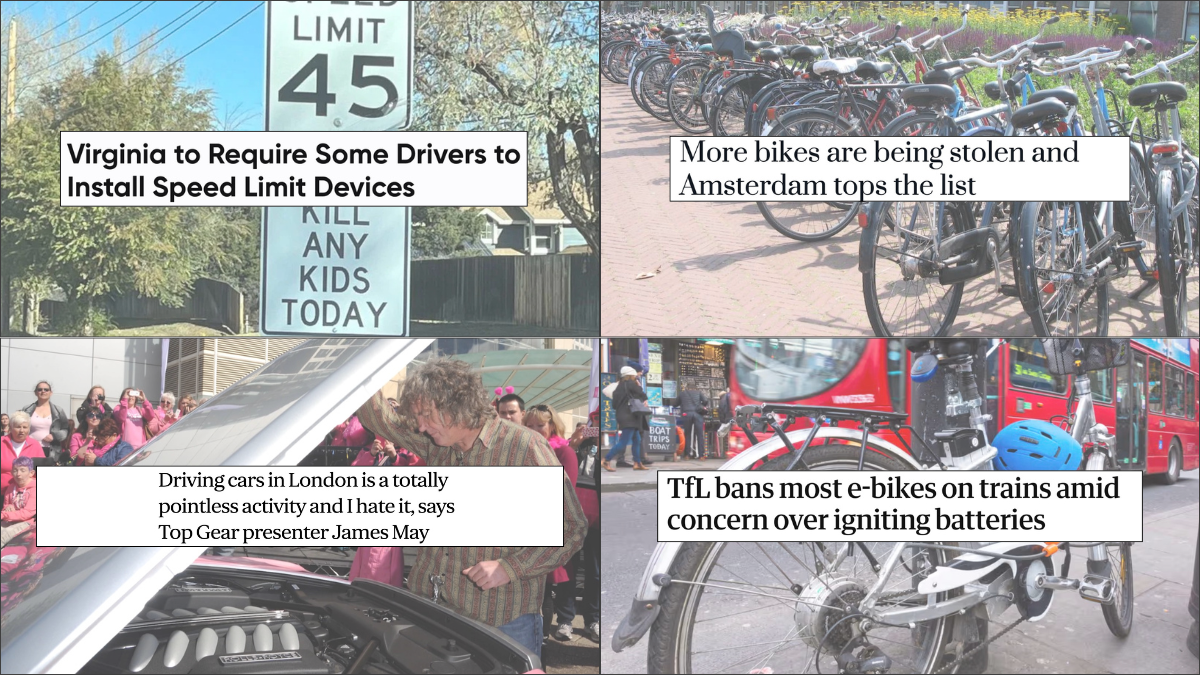
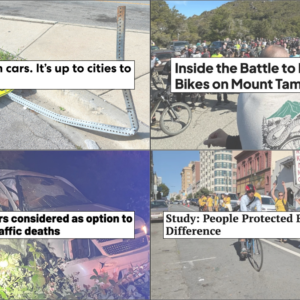
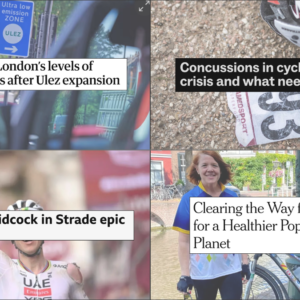
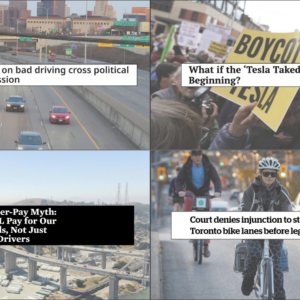
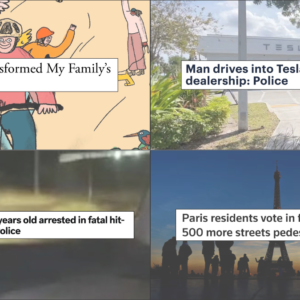
Thanks for reading.
BikePortland has served this community with independent community journalism since 2005. We rely on subscriptions from readers like you to survive. Your financial support is vital in keeping this valuable resource alive and well.
Please subscribe today to strengthen and expand our work.
Didn’t realize this was the case… that makes things so much worse, and really demonstrates how neglected intercity bus regulation is (there’s basically none). I know that article talks about Pacific Crest spinning up service, but I don’t find that to be very satisfying. It’s $60 minimum from Portland to Bend on the service, which I don’t doubt is a fair price for the operator, but considering that it’s $17 from Portland to Eugene on an ODOT supported service, I think it’s clear that private operations in Oregon are not generally affordable.
Anyways, I think this situation shows why it’s bad policy to only fund publicly fund intercity transit when all private carriers have abandoned. It takes time to spin up services, and people are left out in the cold in the interim.
“Dutch bike theft stats”:
Surprised the Dutch don’t have mandatory bike registration—-seems that would help reduce theft.
Bike parking is a serious issue in Amsterdam, they stash them anywhere they can and usually there is nothing to lock them to so a lot of people just Don’t bother. The city is building huge parking garages that will hold 8000 bikes so the theft problem should get better.
I’ve noticed that most of the ebike owners here in NC also use the same flimsy locks as they do on their regular bikes, or no lock at all. Most bikes out here are stolen from their (usually unlocked) garages and porches or even front lawns. When I lived in Portland I was amazed to hear from police at our NA meetings how often residents would never lock their garages and front and back doors.
Would love to see legislators tax vehicles by weight instead of simply adding a fee for being electric. I get that the goal is to capture lost gas tax revenue, but taxing by weight would allow them to kill 2 birds with one stone.
EVs would still pay more because they’re heavier, but doing it this way they’d be incentivized to get smaller as well, offsetting their biggest drawback (it’s never made sense to me that we treat Hummer EVs the same as lightweight EVs for both penalty and incentive purposes).
Heavy vehicles (which are the most dangerous and cause the most road damage) would pay more of the cost, regardless of the fuel type they use. This is long overdue. Anything to reverse the trend of cars and trucks getting huge is long overdue.
This is being pushed by advocates in the current session and yet getting little traction. Our four chairs/co-chairs of the transportation committee demonstrate… what’s it’s called… zero vision. So depressing.
At this point let’s hope they surprise, but signs are bad. Hope to be proven wrong.